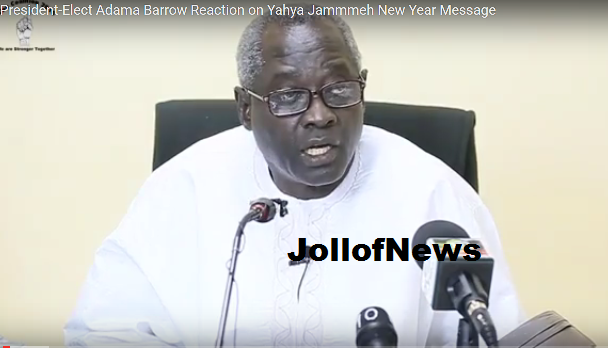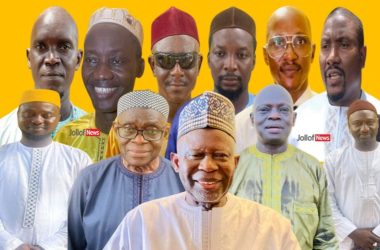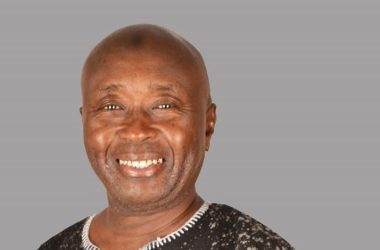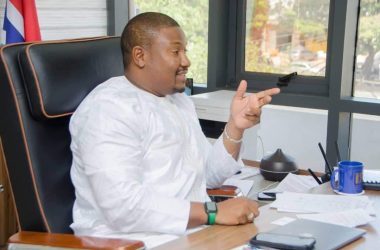
(JollofNews) – When everyone is talking then no one is listening. When no one is listening then no one is thinking. Therefore when everyone is talking then no one is thinking. Something like this is what is happening in the grand scheme of things in Gambian affairs.
By “everyone” please do not take it to mean every single Gambian. For example, the Gambians who are not talking are not contemplated in this syllogism. Now thinking is one thing that every human being does even if one does not know the principles that govern the rational faculty. What is thinking? For starters, it is not an opinion.
Most Gambians who take part in the national discussions have opinions by the truckload and they make sure anyone who cares to listen or read what they write know about their opinions, but are those writers and talkers engaged in that noble thing called thinking?
A person who knows more than I will ever know has this to say about the subject: “… by thinking we mean reasoning, working out an implication, drawing a conclusion, inferring a consequence. Sometimes the word think is used in the sense of “have an opinion,” as when we say, “ I think you are right.” Again, the word is often used in the sense of “remember” or “ call to pensive recollection,” as when we say, “To think the old days over is a luxury divine.”
Thinking is not knowing. Thinking is only one of the processes by which knowing is achieved. We may know a thing by direct sensation (that is, by direct use of the senses), as for instance, we know that it is raining, or that we have toothache. And we may know a thing by direct grasp of the understanding, that is, of the mind, or the intellect without having to “think it out,” as, for example, we know that totality is greater than any of its parts. But when we come to know a thing by thinking we have worked the thing out by studious and progressive steps of mental activity.
When, for instance, one has worked out the demonstration of the theorem, which states that the sum of the angles of any triangle is 180 degrees, one has been thinking. Such thinking is called reasoning or discursive thought; it connects up data and move from one point to another in order to reach a final conclusion.” There you have it! Are we really thinking or are we only stating our beloved opinions, and yelling at each other and/or calling each other names?
The Honorable, Mr. Halifah Sallah !
Mr. Sallah wrote a very interesting article about the Kanilai issue among other things. I read the article a few times and the more I read it the more confused I got. I am not writing about the person of Mr. Sallah but about what he wrote. Mr. Sallah began his article by trying to lay a foundation without delving into the principles that are to hold his foundation steady.
The Gambia Constitution in very clear language states that, “The Gambia is a Sovereign “Secular” Republic.” Mr. Sallah’s quotation of Section 1 left out the word “secular.” Why, I do not know. What “Sovereign or Sovereignty” means, he never said. What “Republic” means he did not say either. First, a Republican form of govern means a representative government- the people elect certain persons to represent them and those elected make laws that in turn affect those who elected them.
Sovereignty can mean “Rule” “Power” “Control” “Authority” Dominion” “Independent.” To grasp what “Sovereignty” means one has to have a conception of the meaning of ‘ Society”, “State,” and “Government” What is a “Society” A society is an aggregate of individuals living together and united by mutual social and economic interests.” What is a State? “A society viewed as a politically organized group.” And a “Government” is the “organs” or “agencies” through which the State performs its functions.”
The essential characteristic of a State is the possession by it of a Supreme Law Determining Authority. Now this “Supreme Law Determining Authority” is what is meant by a Sovereignty. What does this mean? One writer puts it this way: “It means that in every State the very existence of its government, the extent of its powers, and the manner of their exercise, is ultimately dependent upon the acquiescence of the people. This ultimate right of the people means, however, nothing more than that there is a limit to which political oppression and incompetence may safely go.” One of the inferences to be drawn from the above, is that, no constitutional right is absolute. While we have rights, those rights depending on the circumstances may have to give way, at least, temporarily.
Instead of talking about these terms first, Mr. Sallah either assumed that they are common knowledge or ignored them and moved on to his analysis of the Kanilai incident. One thing that always amazes me is that we have many people who will cite a constitutional provision or two without specifically explaining what the provision means and how such a provision is applicable to every day Gambian living. Mr. Sallah divided threat into levels or stages and got into when police should be involved and when military personnel may be involved. I am not an expert in anything.
However, drawing an inference from what I read about what Mr. Sallah wrote, he does not appear to be an expert in security matters. The questions that came to mind as I read Mr. Sallah’s article were: Why is ECOMIG in the Gambia in the first place? Did ECOMIG entered The Gambia without invitation? If ECOMIG entered The Gambia at the invitation of the State then if a group of people do not want them in the country and more specifically in Kanilai then those people should protest to the State. The authority of the State certainly does not reside in Kanilai so why not go and protest where the authority of the State resides. Mr. Sallah said nothing about this.
Where did Mr. Sallah got the information he wrote about in his article? Was it from a thorough investigation? Was it from a National Assembly hearing? As a member of the National Assembly, Mr. Sallah is in a position to initiate a hearing and subpoena public officials to find out exactly what happened? Section 109(2)(a) and (b) and section 109 (3)(a) and (b) give the National Assembly that authority. Instead of utilizing that authority, the great Mr. Sallah wrote an article about a matter whose facts were not completely known. Such an act was unwise and did not befit a person of his statute.
What appears to be certain is that Mr. Sallah did not asked the right questions before he wrote his article. Instead of clarity, which is what Mr. Sallah was trying to achieve, he instead muddy the waters or confused an already complex situation. Mr. Sallah also mentioned the “Public Order Act”(“POA”) without a single citation of the language of the text. Mr. Sallah is not the only one who has mentioned the POA without citing the language or text of the Act. What is the language of this Act? What does it say? Is it constitutional or unconstitutional? If the POA is unconstitutional, how is that so? How come no one so far specifically talked about why and how the POA is unconstitutional? Certainly, Gambia is not lacking constitutional prophets or bouhabas !
The Dictator’s Assets!
An agreement may be void or voidable depending on the nature of the agreement or because of things that happened after the consummation of the agreement. Let me illustrate by going into Contracts Law: The absence of an essential element (capacity, consent, legality, form, etc.,) may render a contract void, voidable, or unenforceable. The agreement that the dictator entered was either void or voidable not because President Barrow did not sign anything. It is not the signing that makes an agreement binding. Oral agreements are as binding as signed agreements.
The signing makes it a lot easier to prove that an agreement existed. If it can be proven that the dictator looted government coffers, then all his assets can be and should be forfeited. There are forfeiture laws somewhere in the books. Of course, the dictator can come to The Gambia and defend his assets. Did not the dictator appoint the former Minister of Justice as her attorney? So he can fairly be represented in court. Why Mr. Sallah mentioned that agreement is beyond me. Anyway, that agreement is as good as Mr. Sallah taking a basket to the river to fetch water!
Kanilai And Protesters

First, the Kanilai protesters should have been arrested because they violated a law of the Gambia. We can call the POA what we want but it is a Gambian law and it has not been revoked or repealed. Mr. Sallah and others said nothing about arresting the protesters.
After reading the POA, I have come to the conclusion that it is unconstitutional. The POA does not violate Sections 4 and 25 (e) of the constitution at all. The language of the POA did not try to supplant section 4 or any other provision in the constitution. And the POA did not say that there cannot be any association. The heading of the POA states as follows:
“ An Act to prohibit the maintenance by private persons of associations of military or similar character, and to make provision for the preservation of public order on the occasion of public processions, and to make provision for the control of the use in public of apparatus for amplifying sound, and for connected matters.” I underlined “similar character” because it is not clear what that means. What in this language is offensive or repugnant to the constitution? If one breaks the statute into it constituent parts this is how it would look like:
The purpose of the POA is to regulate:
(i) private persons of associations of military or similar character; [to be on the look out for those who may form associations that are troublesome]
(ii) to make provision [law] for the preservation of public order on the occasion of public procession. [This is the one that concerns Gambians the most today. This is the one that deals with non-militaristic issues];
(iii) to make provision[law] to control the use in public of apparatus for amplifying sound [ like a loudspeaker];
(iv) to make provision [law] for connected matters [those things related to disturbing the peace].
Now let’s get into the unconstitutionality of a statute. And by the way, the POA is a statute, which means the law was passed or enacted by a legislative body of some sort or persons who had capacity to make law. Even if the POA came into being before the constitution, the constitution is supreme by virtue of its origin and position. The makers of the constitution intended it to be the Supreme Law of the land and the POD was never intended to be the supreme or part of the supreme law of the land. So it is a bad argument to say that the POA is unconstitutional because it is repugnant to Sections 4 and 25 (e) without telling how and why. Some made the argument that the POA is unconstitutional because it was enacted before independence and that it is archaic. Seriously my brother and sister constitutional prophets and bouhabas! A law is not unconstitutional because it is old.
Here is what is written immediately following the heading I quoted above. In brackets you will see [Act No.7 of 1961 amended by Act No 29 of 1963. Act No. 5 of 2009.] The actual date of the commencement of the POA was 31st October 1961. The POA has been in the books for a while and it was last amended in 2009. So the argument that it is an old law is ridiculous. There are laws in the United States that are over one hundred years old and they are still good laws. A law is not unconstitutional simply because it is an old law; there has to be more than that.
A statue can be unconstitutional on its face or in its intent. A statute is unconstitutional on “its face” by the language of the statute itself. If the POA language were to say “no association” or “no practice of religion” or “no criticizing” the government and the like, then the POA would have been unconstitutional of its face. Before going further, the POA defines certain terms and here they are:
(i) Cognizable offense: an offense for which a police officer may arrest without a warrant. [inference, a warrant was required to arrest Gambians in 1961; who would have thought]
(ii) Inspector –General of Police: includes the Deputy inspector-General of police
(iii) Meeting: means a meeting held for the purpose of the discussion of matters of public interest or for the purpose of the expression of views on such matters;[ here you have a clear indication that Gambians were free to have meetings which defeats the argument by those citing Section 25(e)];
(iv) Private premises: means premises to which the public have access (whether on payment or otherwise) only by permission of the owner, occupier, or lessee of the premises;[ Property rights and privacy recognized]
(v) Public meeting: includes any meeting in a public place and any meeting which the public or any section thereof are permitted to attend, whether on payment or otherwise;
(vi) Public place: means any highway, public park or garden, any sea beach, and any public bridge, road, land, footway, square, court, alley or passage, whether a thoroughfare or not, and includes any open space or any land in the Region to which, for the time being, the public have or are permitted to have access, whether on payment or otherwise.
(vii) Public procession: means a procession in a public place.
I am not going to quote the various sections but I will list them and I hope they give you a sense of what is in them. Section 4: Prohibition of Quasi-Military Organization. I do not know of any democratic society that would allow Quasi-Military Organization. Section 5: Control of procession; Section 6: Control of loudspeaker; Section 7: Power to close licensed premises in case of tumult, etc; Section 8: Prohibition of offensive weapons at public meetings and processions; Section 9: Prohibition of conduct conducive to breaches of the peace; Section 10: Disturbed Area; Section 11: Limitation or Period for Which area may be a Disturbed Area; Section 12: Orders, Miscellaneous provisions; Section 13: Powers in this Act in addition to those in other laws. Under section 10: this is what it says about “Disturbed Area” 10(1) The President may, by Notice published in such manner as he or her may direct, declare in respect of any area in The Gambia that such an area is a disturbed area in which an abnormal state of affairs exists. I underlined the word “her” because in case you missed it, the act contemplates the possible of a female president. Interesting indeed! So where is all the fuzz in the Act.
 Here is where the Act, as it stands, is unconstitutional. I said above that a statute may be unconstitutional on its face and I also said what that means. Now I am going to talk about a statue being unconstitutional in its intent. Intent here goes beyond the purpose of the statute to its execution.
Here is where the Act, as it stands, is unconstitutional. I said above that a statute may be unconstitutional on its face and I also said what that means. Now I am going to talk about a statue being unconstitutional in its intent. Intent here goes beyond the purpose of the statute to its execution.
Section 5: Control of Public Procession is really the one that concerns most Gambians. Section 5 subsection 2 states in pertinent part: A person who is desirous of forming any public procession shall first make application for a license to the Inspector-General of Police or the Governor of the Region, or other person authorized by the President, as the case may be, and if the Inspector-General of police or the Governor of the region or other person authorized by the President is satisfied that the procession is not likely to cause a breach of the peace, he or she shall issue a license specifying the name of the licensee and defining the conditions on which the procession is permitted to take place.
At first blush subsection 2 of section 5 appears innocent but let’s take a carefully look at the details. First what are the criteria for issuing license? What guidelines do the license issuers has to follow? If an applicant is denied a license is that the end of the matter? Is there an avenue where an applicant who is denied a license can immediately appeal to if that person’s plan for a peaceful demonstration is time sensitive? As you can see, the POD says nothing about the questions I raised. To highlight what I mean, in the United States, the government can require a license for speech only if there is an important reason for licensing and clear criteria leaving almost no discretion on the licensing authority. Licensing schemes must contain procedural safeguards such as prompt determination of requests for licenses and judicial review.
As the POA stands, If a group wants to demonstrate against the administration, is it likely or unlikely that, that group will be issued a license? It is the president’s authority to issue licenses and he or she delegates that power to people under his command. A President should not have any say on who is issued a license and who is denied one. And when a group is denied a license, the matter should not end there without a judicial review to make sure the denial was legal and procedural guidelines were followed to the letter. Because the POD lacks the above, it violates a fundamental constitutional right- freedom of Association and hence it is unconstitutional as it stands right now. But unless it is challenged in court and ruled unconstitutional it is part of the laws of The Gambia!
By Gambian Outsider





A meal tastes better with salt and pepper; But too much then the spice becomes the meal and the meal is lost in its confusion to the human taste buds.
angered to the brim, burning with heat….but finally the meal is served, taste it or hate it, Gambia is moving forward.
Really “Gambian Outsider”. I honestly don’t know what you are responding to. This is best described as a straw man argument, if you are responding to Hon Sallah. You know, that whole lecture about the Public Order Act is best addressed to the government, because they are the ones relying on it to charge the Kaninlai demonstrators.
And you know what my dear! Don’t confuse your great mind and complicate a simple matter. Sovereignty is clearly defined by our constitution.
It reads: “Sovereignty of the country resides in the people of The Gambia, from whom all organs of Government derive their authority, and in whose name and for whose welfare and prosperity the powers of Government are to be exercised.” Period.
And the mention of the agreement? Why does it bother you? It’s a fact, isn’t it? And it’s connected to Kaninlai. By the way, in case you missed it, Hon Sallah never said its binding or cannot be void. So what’s all that noise about what makes an agreement void or not? That’s a straw man argument mate. Seriously.
Is good that Halifa brought back to life the so call agreement for Gambians to debate since our government is ill prepared to put this agreement to rest by doing the right it to address it. If UN, and AU still have this agreement post on their websites. why will average Gambians not be convinced that there is some sense to it?
What’s wrong with Gambia government asking UN and AU to pull the agreement down if it’s inflammatory?
Why are we back peddling on issues that we fought against during Yahya Jammeh’s time? E.g. Protest. Why can’t we say the same about solo sandang and co, lawyer Darboe and co?
Let us no apply selectively justice especially when we dealing with complex and delicate matters that can bring civil unrest to our nation. Remember the pen is mightier then the sword.
Precisely put by my friends.